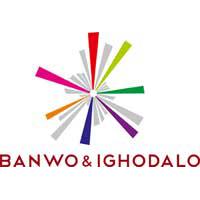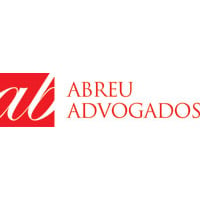

Partner | Eversheds Sutherland






Boris Martor
Partner | Eversheds Sutherland
Number of years practice: 23
Principal practice areas: Project finance, energy and infrastructure, private equity
Languages spoken: English, French, Spanish
What is the geographical focus of your practice in Africa?
Pan-African practice with a particular focus on North and Francophone Africa, West Africa and Central Africa.
My background in terms geographical coverage and activities is mostly Francophone Africa including all countries in the North as well as sub-Saharan French speaking states. However, I am also assisting a number of clients in Anglophone countries on the continent. I have been advising for instance Eskom in South Afric and outside its borders for many years.
Having created the Eversheds Sutherland Africa group back in 2008 out of our Paris office, I have since structured our firm’s activities in hubs dedicated to Africa including through our offices on the continent in the North, in South Africa and in Mauritius. Also I developed practices dedicated to Africa based out of London, Dubai and China.
Geographically I work day to day with our offices worldwide, our offices in Africa and our Eversheds Sutherland Africa Alliance which I created in 2013 and which covers over 39 countries on the continent.
Please describe the most important matters you have worked on in the African market in the last two years, including your role and the significance of the matter (if any) to the development of business and law.
My experience includes acquisitions of entities, corporate finance and structuring of corporate projects, project financing, creation of joint ventures as well as corporate and commercial and regulatory advice in the course of the development or financing of construction of energy and infrastructure
projects.
For 22 years I have advised on large legal projects structuring and financing in Europe and Africa, mainly in the energy (clean energy and oil and gas), infrastructure, transport and telecommunications sectors. Throughout the years, I have advised large corporates, investment corporations, governments, state-owned companies, banks and sponsors or developers on the structuring and negotiation of private equity deals, Public Private Partnerships and infrastructure projects in the course of project finance transactions or institutional reforms and public procurement transactions in France and Africa. My experience also covers corporate transactions and equity investments for private equity funds since 1997.
My strengths in the areas above also enabled me to develop significant work for arbitration and to be involved as adviser or expert in very large arbitration matters, some of those being settled after long negotiations where he was instrumental in leading teams. I am a visiting professor to Sorbonne Assas Law School Paris and Singapore, and Port Louis campus at INSEAD. I am the co-author of several books on Business Laws in Africa.
Having developed an extensive practice in Africa and advised a number of companies in more than 50 countries on the African continent, I also contributed to the creation of the first pan African diploma on OHADA laws applicable in 17 countries in Africa with Sorbonne Assas and Paris XIII universities on Africa laws.
What differentiates your practice from that of other private practice lawyers?
My practice differentiates from other practitioners in several ways; I have more than two decades of activities in Africa and day to day work across the continent, with our presence across 39 countries. I also have an unrivalled OHADA laws expertise with an emphasis on training students and professionals and helping countries to develop the rule of law, as well as a unique balanced mix of clients comprising banks and funds as well as corporates and states or parastatals.
My own African expertise as well as that of the firm has been recognised through a number of industry awards and accolades.
Why has Africa been a particularly strong focus for you?
Originally a cornerstone practice for our Paris office, his team has expanded significantly in the last decade thanks to our top tier work on a raft of projects across Francophone Africa, creating a strong group of UK – and Dubai-based lawyers with long experience and high levels of activity in Africa – as well as an outstanding team of Africa-based specialists through our pan-African network. Our Africa specialists act as both a single point of contact for day-to-day advice and as global pan-African project managers. This long-standing, in-depth knowledge of working across Africa has resulted in team winning leading roles on a number of top projects taking place throughout the continent today.
Africa has been a focus for over 23 years because I felt my job as lawyer could, even in the business world, contribute to developing infrastructure, energy, SME’s and make sure the continent is not just about oil and gas and mining deals.
I developed a unique knowledge of OHADA laws governing security, corporate and commercial law – we have recognised expertise in OHADA law which currently applies to 17 primarily French-speaking Central & West African countries and members of our team are co-authors of books on the subject.
I am committed to supporting Africa’s economic growth and actively supports associations focussing on doing business in Africa, and I am a board member of United States Corporate Council on Africa (US CCA).
What changes have you seen in the appetite for Africa-based ventures and investments over the last five years?
Demand for legal services has been growing. Most of the firms in Africa were solely doing contentious work a decade ago [and] have converted into advisory work. The legal framework in Africa has been developing and becoming more harmonised to create larger economic zones with same business laws.
For all these years, I have tried to support techniques and knowledge to catalyse such developments. In particular thanks to the diversity of expertise offered within the firm and covering all the major sectors in Africa, I have subsequently been able to work in oil and gas, mining, telecoms to follow the African telecom revolution, afribusiness, FMCG and energy sectors.
I have seen African society changing, the way people look at Africa changing and the focus enlarged to wider sectors.
Are there any aspects of the African legal market that you would like to see change?
African countries must continue their efforts to reform their legislation. Many countries are aware of the challenges of reforming many sectors to reassure investors. I also think that law firms in Africa are structuring themselves. I created the Eversheds Africa Law Institute in 2013 because I precisely wanted to contribute to the development of those great law firms on local markets that wish to modernize their practice and take advantage of best practices in an international environment.
The changes in local legal practice are visible over years and the harmonisation of laws across Africa to create legal markets without borders assist in creating new possibilities for operators on a cross border basis. Those trends need to be encouraged.
What megatrends do you think will shape the African market over the coming five years? How (if at all) will these trends affect your practice?
The African future will be revolutionised by digital and new technologies. African states and institutions will have to regulate many sectors such as banking, renewable energy, telecoms and the internet and the blockchain carefully.
The digital revolution is linked to the support of states in the establishment of infrastructures to provide access to renewable energies such as electricity for these states. The development of such infrastructures will support Africa in this revolution which is already well under way.